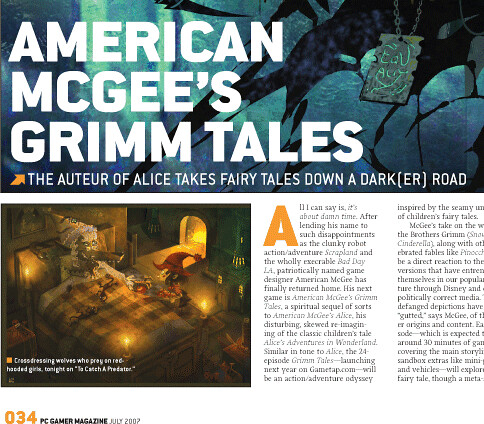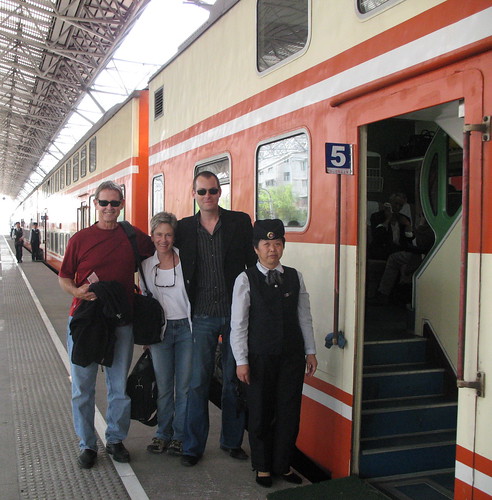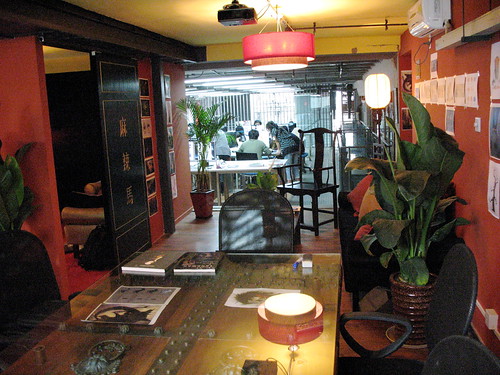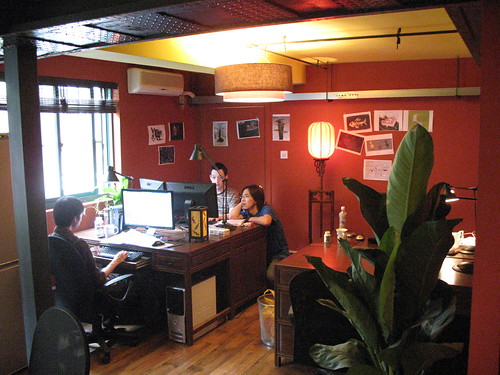Not that you could tell it by reading this blog, but things around here have been absolutely insane. Alongside a two week trip to the US where Xin and I did sales for Vykarian, and where I visited GDC to do a little PR for the new game title, work in the Shanghai studio has been accelerating at a dizzying pace. Spicy Horse has been hiring steadily, we’re working on pre-production of the new title, and in the middle of all this – gutting and remodeling our office space.
One of the wonderful things about China is the pace at which things happen. Change is everywhere and it is rapid. The velocity is intoxicating, but also dangerous. More than a few Western game companies have set their sights on China, poured massive amounts of money into building operations here, bypassed organic growth for rapid scaling, and inevitability imploded.
As we grow our new studio I’m paying particular attention to the details of individual personalities. This being my first independent studio adventure, I’m making sure to apply the lessons provided by those who have gone before me. Failures almost always provide the most valuable examples of what to do and not to do. And often those lessons revolve around the intermixing of various personality types: introverts, feelers, thinkers, leaders, and followers.
Game development, more than many other industries, has always struck me as an odd pairing of antithetical types. Artists and technologists. Essentially polar opposites, who are “forced” to work with one another, overcoming basic differences in communication styles, problem solving methods, and perceptions. Add to this equation the gulf of differences that exist between Chinese and Western culture, and you have the makings of a very interesting case study in human relations, or a spectacular disaster.
People who are self aware, empathetic to their peers, and flexible can overcome these sorts of differences with grace and tact. Others, well… we’ve all worked with them before.
I often wonder, do the people we perceive as inflexible and difficult also see themselves that way? It always seems the answer is ‘no’. Everyone is right in their own eyes. Which means that from “their” perspective, we’re the difficult ones. Would a team comprised only of “difficult” people produce similar output as a team made up only of those I’d call “normal”? Does the inclusion of the occasional difficult person help to keep productions from becoming stagnant? To me, the answers to these questions seem pretty obvious. Truly harmonious teams can be a reality, it just takes awareness to build them.
We’re doing what we can to build a positive and stable culture at Spicy Horse. And we’re still actively seeking to fill the following job positions:
- Producer
- Programmer
- Technical Artist
- Level Designer
- Senior Animator
- Storyboard Artist
- Sound Designer/Composer
If you’re already in China, or trying to find a way to join the adventure, and think you can bring something special to our team, then please contact me. Post a note in the comments, and I’ll get back to you. Comments are moderated (by me), so that inquires aren’t posted to the public.




